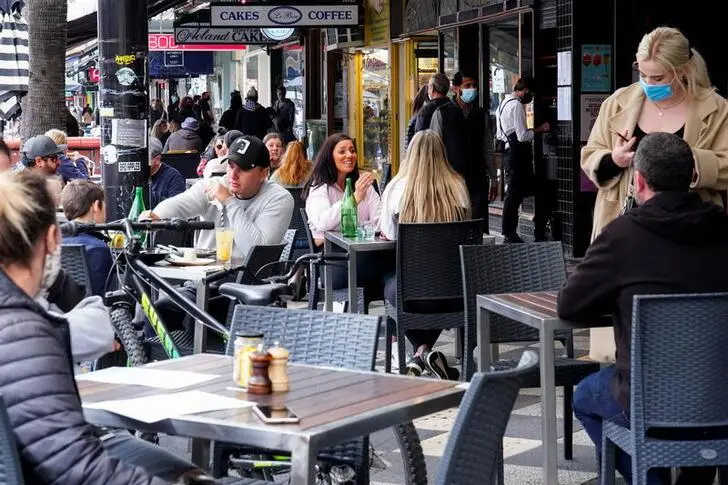PHOTO
AMSTERDAM- Restaurants in one Dutch city reopened on Friday and others said they would open on Saturday regardless of whether they are included in plans by the government to ease the country's COVID-19 lockdown.
Prime Minister Mark Rutte was expected to order the reopening of most stores, hairdressers and gyms at a nationally televised press conference Friday evening, as popular support for the month-long lockdown evaporates despite the strain on hospitals and record new infections. National broadcaster NOS reported that restaurants and bars would be excluded from the reopening, citing government sources. Rutte is due to speak at 1800 GMT.
The government's plans "are clearly unacceptable to us, because there's no sound argumentation for it," said Dirk Beljaarts, chief executive of KHN which represents the hospitality industry.
He urged the government to consider the examples of Britain and Spain, and to listen to Dutch public opinion, which endorses a more aggressive loosening of rules.
Rutte's caretaker government ordered the lockdown in mid-December as a wave of the Delta variant forced the health system to cancel all but the most urgent care and it appeared rising Omicron cases would overwhelm it.
On Friday the Netherlands Institute for Health (RIVM) announced a record high of more than 35,000 infections in 24 hours. Infections have continued to rise despite the lockdown, which bans all public gatherings, with a record of more than 200,000 in the week through Jan. 11.
But hospitalizations declined slightly.
A poll by Hart van Nederland published on Friday found that 89% of people supported reopening stores and a majority also support reopening restaurants and cultural institutions.
More than 86% of Dutch adults are fully vaccinated and nearly 50% received a booster shot in a major campaign during the lockdown.
In the southern city of Valkenburg, restaurants opened on Friday in defiance of the rules and with support from the city's mayor, and 15 other municipalities said they would follow suit on Saturday.
"It's not a question of being rebellious, it's a question of surviving after being hit so hard for the last 22 months," KHN's Beljaarts said.
Primary and secondary schools reopened on Jan. 10 after a longer-than-planned winter holiday, but have been plagued by frequent class dismissals due to illness or exposure of teachers or students.
Friday's measures are expected to include a shorter quarantine period after an exposure and an expansion of the use of masks.
(Reporting by Toby Sterling; Editing by Janet Lawrence, Mike Collett-White and Jonathan Oatis) ((toby.sterling@thomsonreuters.com))





















